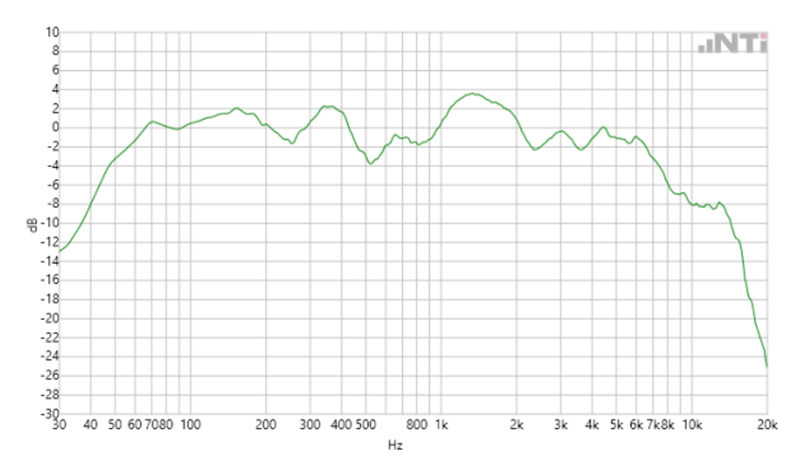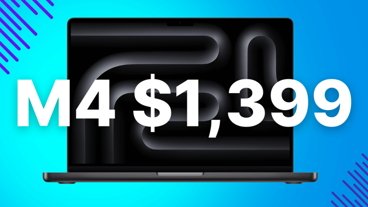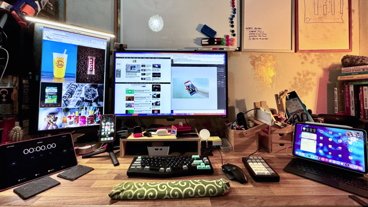An acoustical analysis of Apple's HomePod published Wednesday found the speaker boasts a relatively flat frequency response, characteristics often associated with accurate sound reproduction, but those results might be misleading.
In the third and final installment of its HomePod review, Fast Company tested frequency response using specialized hardware and software from NTi Audio, an acoustic evaluation specialist based in Liechtenstein.
With HomePod set up in a typical living room, the publication saw the device deliver what is characterized as a flat response, meaning the magnitude and phase of output was for the most part in line with input across the frequency spectrum.
Specifically, HomePod output lies within 4 decibels of flat between 70Hz and 6KHz. Further, Total Harmonic Distortion, which in basic terms can be defined as a calculation measuring the difference between a source signal and observed speaker output, was notably slim.
"We found distortion of less than 10% from the 40 Hz to 10,000 Hz range, which is very good, and less than 2.5% from 150 Hz to 10,000 Hz, which is excellent," according to Brian MacMillan, associate general manager at NTi.
The results are similar to measurements seen by Reddit user "WinterCharm," who ran HomePod through a gamut of tests over the weekend and also found the speaker to reproduce "near-perfectly flat" sound.
Both tests found steep decreases in output at the high end of the spectrum, just shy of its 20KHz range limit. The Fast Company evaluation saw its test unit begin to taper on the low end at around 60Hz, results not shown in the Reddit test. And therein lies the problem.
As noted by Reddit user "edechamps" in response to WinterCharm's rundown, acoustic testing was performed in a reverberant room without any apparent steps taken to reduce reflections such as impulse response windowing. Further, the graph in the Reddit post was presented at a scale that does not provide enough granularity to make accurate comparisons.
Whether Fast Company implemented windowing in its procedure is unknown, but the publication did perform multiple measurements from different points of the evaluation room. Still, as the test was not conducted in a controlled environment free of reverberations, its results are questionable.
As edechamps puts it, any conclusion gleaned from a frequency response evaluation that is not performed in an anechoic chamber, or does not attempt to nullify aberrations caused by real-world factors, should be taken with a hefty grain of salt.
Still, Apple was able to create a speaker that performs more than adequately in real-world scenarios, as evidenced by numerous positive reviews lauding the device's ability to reproduce premium sound in a variety of environments. According to Apple, HomePod's adaptive acoustic technology, powered by an advanced DSP, is largely to thank for that level of quality.
 Mikey Campbell
Mikey Campbell







-m.jpg)






 Christine McKee
Christine McKee
 Malcolm Owen
Malcolm Owen

 Sponsored Content
Sponsored Content

 Amber Neely
Amber Neely











123 Comments
Apple advertised “distortion free music” & HomePod seems to do the job. The only other company that advertised it to my knowledge is Devialet. Sonos & Google didn’t say about such a thing.
Edechamps dorsnt know anything so why are you repeating what he said when you don’t understand it anyway.
‘Nobody will is this in a treated room and omnidirectional wouldn’t work in a treated room anyway.
I think we've seen that the consensus is that the HP sounds really, really fucking good. And now that we know that just the raw component cost is around $220, the price is pretty damn good as well.
Is this an editorial?